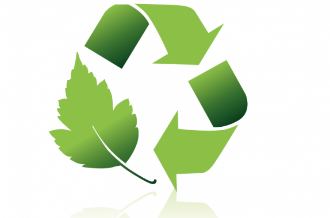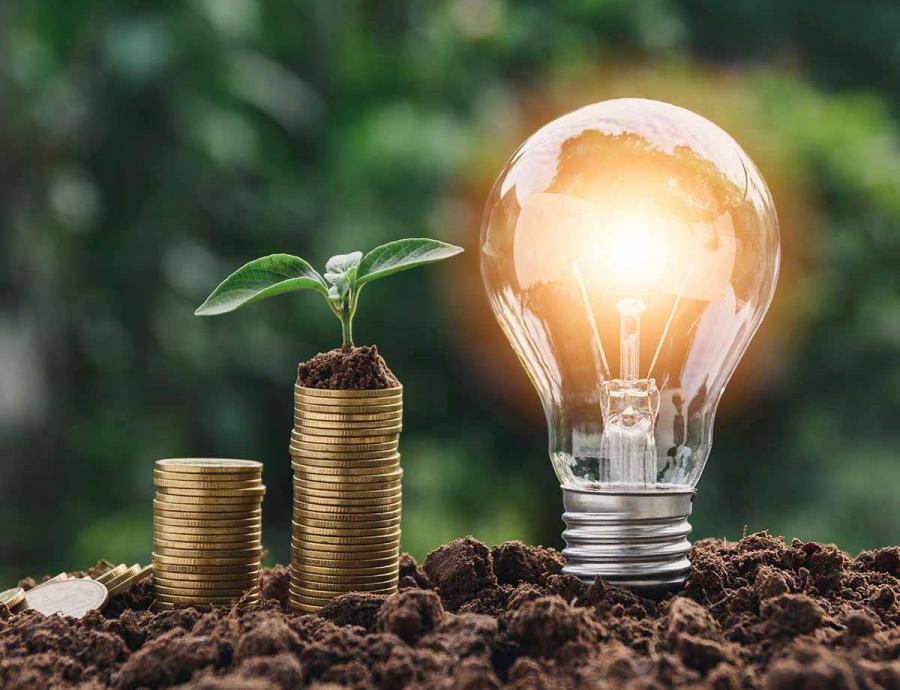Buildings, Energy and Our Climate
Emissions from Buildings
We spend most of our daily lives—sleeping, working, eating—in buildings. Our homes, offices, grocery stores, places of worship, etc. require a significant amount of energy to ventilate the air, manage temperatures, power our devices, and provide many of the other basic comforts we are accustomed to. These activities come at a cost. The fossil fuels used in buildings and those used to generate the electricity we consume emit a significant amount of GHGs into the atmosphere. As of 2019, buildings represent 56% of our community’s total GHG emissions.
Buildings however, also present the biggest opportunity for us to reduce our emissions, improve the daily lives of all of our community members, and design smart and efficient neighborhood systems that are resilient to climate change. From our Greenhouse Gas Inventory, we know that we have an opportunity to make big reductions in building emissions by electrifying our homes and businesses and making them more efficient, while we work to green the grid.

Benefits of Geo-Micro Grids
Scaling up electrifications for larger commercial and institutional structures could benefit from the use of geo-micro grids, a decentralized solution that uses thermal energy transferred through heat pumps and a shared water loop. Larger, more energy intensive buildings could benefit from this technology as it could serve multiple buildings while providing other resilience benefits, such as enhanced power reliability.
Energy in the Community
Building Sustainably
One way to reduce community scale energy use is to make sure we have buildings constructed to high performance standards. One of those standards is the Leadership and Energy and Environmental Design (LEED) certification program.
Watertown has an ordinance to require all new development projects to be LEED silver certifiable within the commercial, mixed-use and industrial zones.
Electrification and Efficiency
Homes of the Future
In the last 8 years, 8 projects representing 1,243 units have been completed, and another 487 are under construction. These new units are being built to the high building efficiency standards of the entire town, but there remains a significant number of older homes that will need to be upgraded in order to meet our goals for energy as well as providing good housing options that all Watertown residents can afford.
To support landlords and renters in establishing sustainable rental housing, Resilient Watertown created a Resource Center that is an online hub for tools, guides, and funding opportunities to take action. Renters and landlords can utilize the Resource Center to make sustainable building upgrades more affordable, learn tips to save energy and money, and other climate-related topics like EVs, sustainable landscaping, conserving water, and more. Many of the resources are valuable for homeowners as well!
Homes of the future start with the homes of today, so taking action in rental housing is essential to meeting community climate goals!
Visit the Resource Center
Leading by Example
Bold Energy Policies
Watertown was the first community in New England to pass a Solar Requirement Ordinance. This requires solar installations on certain commercial buildings under new construction or with major additions / renovations.
Leading by Example
100% RE
The Watertown Town Council committed to aspirational goals of using 100% renewable energy for municipal electricity by 2035, and using 100% renewable energy for municipal heating and municipal transportation by 2050. The Town Council also actively encourages non-municipal residential, commercial, and transportation sectors in Watertown commit to a transition to 100% renewable energy by 2050.
Leading by Example
Watertown's Efficient Buildings
Watertown currently has three municipal solar installations at our High School, DPW and Police Station, they provide almost 4.5% of our Municipal electricity usage.
Solar deployment in residential, commercial and municipal buildings in town total 285 installations with over 4 MW DC installed capacity. Residential - 267 installations, 1,493.14 KW, Commercial – 18 installations 2,591.42 KW.
Leading by Example
Schools and Sustainability
Watertown’s Building for the Future committee has been working on renovations or replacements of four new / renovated schools in the near future. (Three Elementary Schools and the High School)
Two Elementary schools will be completely new and are targeted to be Net-Zero through a combination of better than code energy efficiency and aggressive rooftop and canopy solar deployment.
Learn More

Watertown Environment and Energy Efficiency Committee
Watertown has an active energy committee. This committee is appointed by the Town Council to assist with Environment and Energy related issues. The Committee is responsible to:
- Review and make recommendations about policies, procedures, activities, and facilities of departments, boards, or agencies of the Town as they relate to energy conservation and emissions reduction
- Research energy use and greenhouse gas emissions in Watertown
- Advise and assist municipal officials and employees in ensuring compliance with relevant national, regional, and state laws, regulations, and programs that aim to reduce greenhouse gas emissions
- Provide information, referrals, guidance, and technical assistance to individuals, public agencies, businesses, and organizations in matters relating to energy conservation and emissions reduction
- Coordinate activities of other local groups organized for similar purposes
What You Can Do
Ways to Save
From tips and utility sponsored rebates and incentives for energy saving measures, the Mass Save program covers everything from highly efficient appliances to deep energy retrofits to getting rid of an old refrigerator. Or you can opt up in Watertown Electricity Choice to ensure the energy you do use is a clean as possible!







